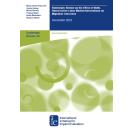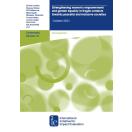Supplementary feeding for improving the health of disadvantaged infants and young children: a systematic review
3ie systematic review 15, 2016
This systematic review by Kristjansson and colleagues examines whether food supplementation is effective in improving the health of disadvantaged children aged 3 months to 5 years, and the factors that contribute to the effectiveness of food supplementation programmes. The programmes are commonly conducted to close the energy gap from poor nutrition, as well as to reduce the risks of lowered cognitive functioning, poor school performance and poor health. Included studies were a mix of randomised controlled trials and controlled before-and-after design. Findings record a positive effect on the psychomotor development of a child, but no clear evidence of an effect on cognitive development. Authors find that strictly supervised supplementation programmes are more effective than distributing home rations. They further conclude that implementation is crucial in determining programme effectiveness.

